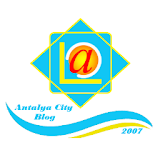Ottomans divided Iraq into 3 parts; Mosul, Baghdad, Basra. These 3 cities has multi-ethnic population (Sunnis, Kurds, Shia, Turkmens, and Nestorians). So there is no majority. The direct Ottoman rule was imposed and lasted until World War I; afterwards the British influence increased in the region.
1919: Paris Peace Conference: Kurdish delegation attends along with Prince Faisal (Hashimite Family) (Future king of Iraq)
GB will unify 3 provinces, create `class A` mandate of Iraq. GB proposes a Kurdish Tribal Confederation. Iraqi Kurds wanted self determination. GB and Hashimite King opposed to this.
The first revolt began on May 22, 1919 with the arrest of British officials in Sulaymaniyah and it quickly spread to Mosul and Arbil. The British employed aerial bombardments, artillery, ground combat, and on one occasion, chemical gas, in an attempt to quell the uprising. Then the British exiled Mahmoud to India. In July 1920, 62 tribal leaders of the region, called for the independence of Kurdistan under a British mandate. The objection of the British to Kurdish self-rule sprang from the fear that success of an independent Kurdish area would tempt the two Arab areas of Baghdad and Basra to follow suit, hence endangering the direct British control over all Mesopotamia. In 1922, Britain restored Shaikh Mahmoud to power, hoping that he would organize the Kurds to act as a buffer against the Turks, who had territorial claims over Mosul and Kirkuk. Shaikh Mahmoud declared a Kurdish Kingdom with himself as King, though later he agreed to limited autonomy within the new state of Iraq.
By 1927, the Barzani clan had become vocal supporters of Kurdish rights in Iraq. In 1929, the Barzani demanded the formation of a Kurdish province in northern Iraq. Emboldened by these demands, in 1931 Kurdish notables petitioned the League of Nations to set up an independent Kurdish government. Under pressure from the Iraqi government and the British, the most influential leader of the clan, Mustafa Barzani was forced into exile in Iran in 1945.
Later he moved to the Soviet Union after the collapse of the Republic of Mahabad in 1946.
in 1958, Abdul Karim Qasim returned from exile by the military coup. Kurds demanded power sharing but it is rejected by Qassim and results in Kurdish Rebellion based on demand of Kurdish as an official language.
During 1959-1960, Barzani became the head of the Kurdistan Democratic Party.
In response to the attack, Qasim lashed out and ordered the Iraqi Air Force to indiscriminately bomb Kurdish villages in 1961.
1963, Baathist coup against Qasim.
Abdul Rahman Arif came to power, the Iraqi government launched a last-ditch effort to defeat the Kurds. This campaign failed in May 1966, when Barzani forces thoroughly defeated the Iraqi Army at the Battle of Mount Handrin, near Rawanduz.
New Kurdish demands, full autonomy. 2/3 of oil revenue must spend in N.Iraq. but this is rejected. This caused another rebellion by Kurds.
Rahman Arif announced a 14-point peace program in June 1966, Barzani accepts this.
In 1966, new government established in Iraqi Kurds are offered a de-centralized administration.
1968, Baath party came to power in Iraq.
Proposals for full authonomy, Barzani demands full independence. A peace plan was announced in March 1970 and provided for broader Kurdish autonomy. The plan also gave Kurds representation in government bodies, to be implemented in four years.
Iraqi army controlls towns, Kurds control countryside. Kurds armed, supported by USA, Iran and Israel. Kurds have bases in Iran. USA wants to support Kurds to weaken Iraq government.
1970-1975: Barzani viewed as America`s man.
Support ends with Algiers Agreement in 1975. In 1974, Iraqi government began a new offensive against the Kurds and pushed them close to the border with Iran. Iraq informed Tehran that it was willing to satisfy other Iranian demands in return for an end to its aid to the Kurds. With mediation by Algerian President Houari Boumédiènne, Iran and Iraq reached a comprehensive settlement in March 1975 known as the Algiers Pact. The agreement left the Kurds helpless and Tehran cut supplies to the Kurdish movement.
After 1979, Iran Islamic Revolution, Iran forces Kurds out.
1980-1988: During the Iran–Iraq War, the Iraqi government again implemented anti-Kurdish policies and a de facto civil war broke out.
The Al-Anfal Campaign constituted a systematic genocide of the Kurdish people in Iraq. 150.000-200.000 Kurds killed with use of gas in Halabja.
Kurds are divided over problems between Kurdish Democratic Party (KDP)(BARZANI)
And Patriotic Union of Kurdistan (PUK) (TALABANI).
In 1991, Iraqi invasion of Kuwait prompts in 1991 Kurdish Rebellion: 20.000 killed, 1.5 million reffugees.
Turkey fears impact Kurdish co-operation with PKK.
Economic problems. Must close pipeline from Iraq to Turkey. Iraqi Kurds flee into Turkey. Now crisis for Turkey. UN Resolution 688: Establishment of a no fly zone, safe havens for Iraqi Kurds. In 1991, Turkish President Ozal orders air strikes on PKK followed by ground operations. 1992: 5000 troops into Northern Iraq.
Relations between the PUK and the KDP started to become dangerously strained from September 1993 after rounds of amalgamations occurred between parties. This led to internecine and intra-Kurdish conflict and warfare between 1994 and 1996. Direct United States mediation led the two parties to a formal ceasefire in Washington Agreement in September 1998.
Iraqi Kurds have played an important role in the 2nd Gulf War, “Operation Iraqi Freedom" Kurdish parties joined forces against the Iraqi government in the Operation Iraqi Freedom in Spring 2003. The Kurdish military forces known as peshmerga played a key role in the overthrow of the former Iraqi government.

























